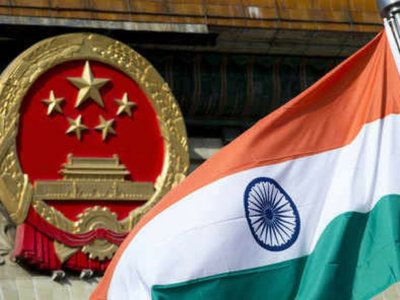
NEW DELHI: A day after China’s outburst over the change in foreign direct investment (FDI) policy, India on Tuesday hit back at its neighbour, saying the amendment did not violate any global commitment as it did not bar investments from across the border but only mandated prior screening of proposals.
Besides, sources pointed to a host of Chinese policies to argue that Beijing had a chequered record in following “discriminatory” policies against overseas entities.
Last week, the government amended the FDI policy to mandate that all investment proposals from countries that shared a border with India would have to be cleared by the government instead of them being on the automatic route, a tool that allowed entities to simply inform the Reserve Bank of India (RBI) after getting the funds into the country. Earlier, this policy was meant only for investments from Bangladesh and Pakistan and the latest move was seen to be targeted at China, prompting it to complain that India had violated its commitment under WTO agreements.
Government officials, however, said there was no concern as the move would not impact goods trade and the latest press note did not fall within the illustrative list under Trade Related Investment Measures (TRIMS), which is also part of the WTO commitment.
Similarly, under the services agreement at WTO, the latest move does not automatically result in any cap on equity or impose any restrictions but only requires fulfilment of a different procedure.
More on Covid-19
Coronavirus pandemic: Complete Coverage
21-day lockdown: What will stay open and what won't
How to quarantine yourself at home
Trust the newspaper for your daily verified news
Officials said India has not violated the Bilateral Investment Treaties (BITs) with either China or Nepal, which have been terminated. “The provisions only apply to investment already made into India prior to the termination of the treaty. So, no retrospective action has been taken to negate existing investments and there is no violation of the respective BITs. The same measure was there for Pakistan and Bangladesh for long and without any challenge,” an official said.
In contrast, officials said China had adopted policies that restricted access of foreign investors in sectors such as financial services, telecom and media. Indian IT companies for long have complained of market access restrictions, crippling their growth through non-tariff barriers.
Last December, China had also ordered state offices to remove foreign hardware and software within three years, even as Twitter and Facebook are blacked out.
Besides, sources pointed to a host of Chinese policies to argue that Beijing had a chequered record in following “discriminatory” policies against overseas entities.
Last week, the government amended the FDI policy to mandate that all investment proposals from countries that shared a border with India would have to be cleared by the government instead of them being on the automatic route, a tool that allowed entities to simply inform the Reserve Bank of India (RBI) after getting the funds into the country. Earlier, this policy was meant only for investments from Bangladesh and Pakistan and the latest move was seen to be targeted at China, prompting it to complain that India had violated its commitment under WTO agreements.
Government officials, however, said there was no concern as the move would not impact goods trade and the latest press note did not fall within the illustrative list under Trade Related Investment Measures (TRIMS), which is also part of the WTO commitment.
Similarly, under the services agreement at WTO, the latest move does not automatically result in any cap on equity or impose any restrictions but only requires fulfilment of a different procedure.
More on Covid-19
Coronavirus pandemic: Complete Coverage
21-day lockdown: What will stay open and what won't
How to quarantine yourself at home
Trust the newspaper for your daily verified news
Officials said India has not violated the Bilateral Investment Treaties (BITs) with either China or Nepal, which have been terminated. “The provisions only apply to investment already made into India prior to the termination of the treaty. So, no retrospective action has been taken to negate existing investments and there is no violation of the respective BITs. The same measure was there for Pakistan and Bangladesh for long and without any challenge,” an official said.
In contrast, officials said China had adopted policies that restricted access of foreign investors in sectors such as financial services, telecom and media. Indian IT companies for long have complained of market access restrictions, crippling their growth through non-tariff barriers.
Last December, China had also ordered state offices to remove foreign hardware and software within three years, even as Twitter and Facebook are blacked out.
Download
The Times of India News App for Latest Business News
Subscribe
Start Your Daily Mornings with Times of India Newspaper! Order Now
more from times of india business
Quick Links
ELSS Mutual Funds BenefitsIncome Tax Refund statusWhat is AssochamITR Filing Last DateHome Loan EMI TipsHome Loan Repayment TipsPradhan Mantri Awas YojanaTop UP Loan FeaturesIncrease Home Loan EligibilityHome Loan on PFTax Saving Fixed DepositLink Aadhaar with ITRAtal Pension YojanaNita AmbaniIndian EconomyRBIAadhaar CardSBIReliance CommunicationsMukesh AmbaniIndian Bank Ifsc codeIDBI Ifsc codeIndusind ifsc codeYes Bank Ifsc CodeVijay Bank Ifsc codeSyndicate bank Ifsc CodePNB Ifsc codeOBC Ifsc codeKarur vysya bank ifscIOB Ifsc codeICICI Ifsc codeHDFC Bank ifsc codeCanara Bank Ifsc codeBank of baroda ifscBank of America IFSC CodeBOM IFSC CodeAndhra Bank IFSC CodeAxis Bank Ifsc CodeSBI IFSC CodeGST
Get the app








